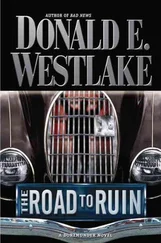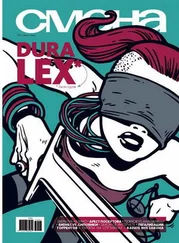Normally, in a particularly gruesome murder like this one, well covered in the local press, it would be almost automatic to ask for a change of venue to some county beyond the reach of regional papers and TV, but Ray Jones was already a famous person, famous everywhere. The national press would definitely cover this trial, so there was no way to get out from under the glare of publicity.
Still, fame could cut both ways. In the four years since Ray Jones had built his theater and bought his house out at Porte Regal, he’d done a number of things to ingratiate himself with the community, lending his name to hospital fund drives, putting on a charity performance for the local Boy Scouts, things like that, things any sensible celeb would do when trying to establish roots in a community. Some portion of that pool of potential jurors would harbor warm feelings toward Ray Jones as a result of his good deeds in Branson, and it was part of the job of Warren Thurbridge and his team to find those people and get them on the jury. Swallow the bad publicity, hope the good publicity does some good. Stay at home in Taney County.
This is where Jim Chancellor came in. A local boy, former prosecutor, he could tell you something about half the people on the jury list — but not till the phone people left.
In the meantime, Warren busied himself at Pat Kelly’s desk, going through his message slips. Nothing important; he’d spent part of the drive from Branson on his car phone to the Dallas office, getting brought up to date on the firm’s other affairs. In fact, most of these messages were from the media; the usual press feeding frenzy was about to begin. Later on, Warren would be more than happy to wage his Ray Jones battle in public, a kind of warfare at which he excelled, but at the moment journalists were useless to him, and so he’d have nothing to do with them. “Have Julie take care of these,” he told Pat, Julie being the file clerk who would also double as media spokesperson.
“Right,” Pat said as the phone workers came out of his office, both grinning happily but apologetically, saying, “All fixed. Sorry for the inconvenience.”
“No trouble,” Warren assured them, now that the trouble was over, and he and Jim went at last into his office and shut the door, while the two phone workers left the building and walked down the block to the Contel repair truck they’d obtained the same way they’d gotten the IDs and the tools and the hard hats: bribery.
Stashing their hard hats and tool belts in the back of the truck, the ex-phone repairers drove sedately away, circling one extra block to go past a small RV park. Half a dozen RVs, big, ungainly traveling hotel rooms on wheels, faced the street in a row across the front of the park, and in the driver’s seat of one of these an old geezer sat reading the latest Modern Maturity . When the Contel truck went by, he looked up, grinned, and gave an everything’s fine O sign with thumb and first finger. The former phone people waved and drove on, and the geezer went back to reading about how retirees could avoid paying their fair share of the cost of society. Behind him, two technicians from the Weekly Galaxy hunkered over recording equipment, and the sound of Warren Thurbridge’s voice was heard, saying, “Now, Jim, don’t hold anything back. Say what you want about these people. Not a word of this will ever leave this office.”
The Weekly Galaxy hospitality suite was jumping when Sara arrived a little after five o’clock. Three connecting rooms of sofas and easy chairs and big-screen satellite TV. A bar in each room, with a generous gent in a black bow tie behind each one. White cloth — covered tables offered the kind of airy snacks that stave off hunger without protecting from inebriation. And present for the largesse were many representatives of the fourth estate.
The first thing for Sara to do was get a full glass, for protective coloration. A few customers were ahead of her at the bar she chose, giving her an opportunity to see just how lavish a hand these bartenders had, so when her turn came, she asked for a white wine spritzer with lots of ice, and then, as she moved among the three rooms, she didn’t drink it. Nor did she stop to chat with anyone; at first, all she wanted here was a general feel of the occasion.
The occasion was unbuttoned, is what it was. Mostly, these were the entertainment reporters of our news-hungry nation, more of them from television than print, and more from cable than network, which meant the room wasn’t exactly awash in high-flown rhetoric about the nobility of the journalistic profession. These were mostly wannabes, people who’d started covering showbiz only after they’d given up their own showbiz dreams. Many garage bands, many regional theater productions, many department-store modeling jobs, many public access-channel shows, all shimmered in the past around these people, giving them that weird edge, that manner of caring passionately about something they don’t care anything about at all. It can pass for sophistication, in the dark, with the light behind it.
While she wandered around, getting a sense of the scene, of the people here, the kind of journalist assembled for this story — okay, the competition, if you insist — familiar faces from the bad old Galaxy days, familiarly ravaged, passed by from time to time. She made no effort to establish contact. Principal among these faces and among the most ravaged were the Down Under Trio, those practiced enticers, hard at work sabotaging American journalism. Sara saw them one at a time, sheepdogging their victims to the party.
Harry Razza she saw first, the matinee idol who’d told her about this cheery reporter trap. He came in with a pair of girls all in dark leather, who had perfected the ability to giggle and sneer at the same time, so they were definitely from either a teenage magazine or MTV. Harry gave them to some boys and left.
A little later, Sara saw another of the Down Unders, Bob Sangster, the one with the big nose and an easy working-class manner, who had reeled in an older gent smoking a pipe and wearing leather elbow patches, a former reporter retired to People , probably. And sometime after that, in came Louis B. Urbiton with a pair of scruffy thirtyish proles under his wing, urban cowboys who’d dressed themselves down at the mall exclusively in imitations — polyester and vinyl. These must be reporters from one of the Galaxy ’s direct imitators, the Star or the National Enquirer or one of those. True competitors, in other words, toward whom no mercy would be shown.
Louis delivered his latest bag to the tender mercies of the nearest bartender, clapped them on the back, and departed, staggering only slightly, eyes only a bit redder and wetter than usual. It was a tough dirty job, but somebody had to do it. And none better than the Down Under Trio.
“Sara!”
That had sounded more like a cry for help than a greeting, and when Sara looked around, she saw why. It was Binx Radwell who had called to her, a fog of free-floating angst in the shape of a man. A blond guy in his mid-thirties, Binx Radwell had a more or less normal head and body, except that it was all covered by a quivering padded layer of baby fat. Then equal parts of panic and perspiration had been larded on top of it all, as though he were about to be put on a spit for several hours over an open fire. Given the usual expression in Binx’s eyes, that’s exactly what he expected to happen, any minute.
Sara’s invariable reaction to Binx was helpless pity combined with helpless impatience. Why didn’t he just pull his socks up, for heaven’s sake? Why was he always so afraid all the time?
Well, she knew why. He worked for the Galaxy, that’s why, and he lived with his wife Marcie and their children at the very outer edge of his income; disaster was never more than one false step away. A couple of years ago, in fact, Binx had actually been fired, not because he’d been doing anything worse than usual but merely as an example to the troops. Having been an editor, and very well paid, he’d floundered and wept and semidrowned for a little while, and then the Galaxy had hired him back... as a reporter, at half the salary.
Читать дальше







